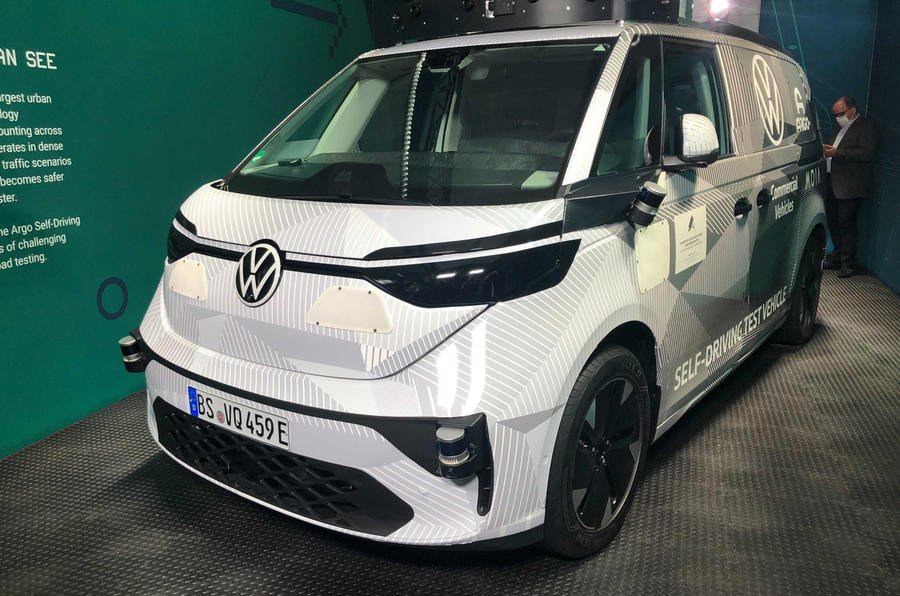Autonomous Volkswagen ID Buzz revealed ahead of 2025 launch

The VW Group is planning for its Moia ride sharing subsidiary to be the first firm to run the ID Buzz AZ from 2025 onwards, initially in Hamburg. Autonomous ID Buzz prototypes fitted with the Argo AI technology have begun testing in a number of urban environments including Munich, where Argo's European arm is based.
By 2030, Volkswagen estimates that some 15% of its revenue will come from mobility services. "Autonomous driving will change the industry like nothing else before," said CEO Herbet Diess, adding that the technology could, in effect, double the size of the industry through the creation of new jobs, legislative considerations and products.
The Argo software uses data from the cameras, radar and lidar systems – including a roof-mounted proprietary Argo Lidar sensor – to create a 360-degree maps of the vehicle's surroundings.
Argo claims its software can detect objects from more than 400 metres away, and can also predict the actions of pedestrians, cyclists and other vehicles, adapting the controls as required.
The fully autonomous testing of the vehicle takes place at the Argo AI development centre near Munich, where the firm has a closed course that allows for testing in a variety of conditions. Argo also has a test track in the USA.
The aim of the trials, said Argo CEO Brian Salesky, is "to create the world's best driver". The advantages of autonomous vehicles in urban environments are numerous, he said: "An autonomously driving vehicle has a computer that is never getting tired, it's never getting distracted, it's always paying attention 360 degrees and 100 metres out, and it's always learning and improving. We cannot say that about our human driving counterparts."
The two companies are focusing primarily on congested and complicated urban scenarios at this stage of development, because that is where they envision the most customer demand will be initially. A roll-out into more extra-urban areas will come, they said, but for now, said Salesky, "it makes sense to start the business where there's a lot of vehicles on the road."
The Buzz was chosen as the launch vehicle because its size allows it to be readily adapted for use as an autonomous ride-hailing vehicle, or as a cargo-carrying van. Diess referred to the passenger-carrying variant as a 'Roboshuttle' though it is not clear if this name will be taken to production.
When asked by Autocar if he could envision a date that the entire Volkswagen fleet would be capable of fully autonomous driving, Diess refused to be specific. He estimated that "85% of VW products will still be cars in 2030", but added that the development of autonomous technology is accelerating and the costs are coming down, making a wider-scale roll-out of the Argo-developed technology more feasible in the coming years.
Related News
